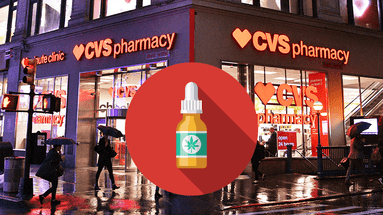Posted by Pure Potent on Mar 29th 2021
CBD for Pharmacists
PROPER USE OF CBD PRODUCTS BY PATIENTS
The wide array of cannabidiol (CBD) products and its extracts available with no prescription makes it increasingly important for pharmacists to counsel patients. This is so that patients can know which product works for them and how they are to properly use it.
Danielle Fixen, PharmD, BCGP, BCPS, of the University of Colorado Skaggs School of Pharmacy and Pharmaceutical Sciences said in a meeting that; "Cannabis plants are used to make both medical and recreational products." Cannabis or marijuana has a high concentration of tetrahydrocannabinol (THC), but CBD is easier to extract and with a low amount of THC. There are numerous types of CBD products with different labels and formulations, which are important when stocking the products in the pharmacy.
While the broad-spectrum CBD products contain all the naturally occurring cannabinoids in the cannabis plant without THC, full-spectrum products contain all the compounds in the cannabis plant plus THC. There are products labeled as CBD isolates, and they contain about 99% CBD.
Hemp contains CBD but is more difficult to extract and also contains less than 0.3% THC. Notably, pharmacists are aware that hemp oil is not the same thing as CBD oil. The endocannabinoid system (ECS) is a difficult cell-signaling system that balances and regulates several processes. It composes of endocannabinoids, including anandamide (AEA) and 2-arachidonoylglycerol (2-AG). It is pertinent that pharmacists consider ECS when discussing CBD products with their patients for many reasons. This is because the ECS is responsible for modulating cognitive activities and serves to promote the role of CBD and other cannabinoids via interaction with its receptors. The ECS is responsible for modulating serotonin, norepinephrine, dopamine, acetylcholine, gamma-aminobutyric, and glutamate.
It is also important that experts should warn patients of the possible adverse effects of CBD, which may include; diarrhea, drowsiness, nausea, dry mouth, or fatigue. The use of CBD has been debated heavily in the past years because of its potential therapeutic effects. In 2019, FDA issued a warning about the potential impact of CBD.
In the process of selecting a CBD product in a pharmacy or when recommending to patients, clinicians should do well to demonstrate a framework and consider a variety of delivery methods. Some common delivery methods include sub linguals, topical creams, inhaled products, and edibles.
The inhaled formulations have an immediate peak and onset effect in not more than 30 minutes which could last to 2 hours. The tendency to dose is easy since the effects are all immediate, although vaporization is preferred to smoking. Sub Linguals also have fast onset as they can also last between 4 to 6 hours. While interacting with patients on the use of Cannabis, it is important that CBD experts inform the new users on how to effectively use the products. There is also a need to explain the possible storage methods for each type of product to avoid denaturing or rendering the content useless.
The CBD has 1 to 6 hours onset, and their duration is 6 to 8 hours. This is better for patients looking for relief over a long time.
Let us know if you have any questions for us. We will love to hear from you.

